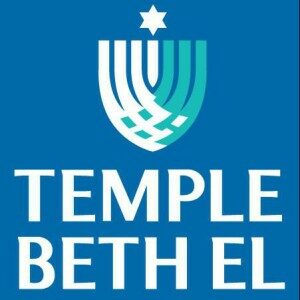This week, in parashat T’rumah, Exodus25:1-27:19, the Torah details the commands for the building of the Mishkan, the Tabernace, or portable Temple. We can understand about the need to bring God into our presence, even today, when we imagine God to be beyond the ideas of a tent or an ark of the covenant that might actually contain God. After all, there are moments in our lives when we feel God much more powerfully, and there are places we go in order to experience God more fully too. Life cycle events, Shabbat services, holidays, family get-together’s – we often identify these times as filled with greater meaning, and even the presence of God. Synagogues, holy places, sites of tremendous natural beauty – these loom large in our mind as places where we might feel connected to God.
The Israelites in the desert, after the encounter with God at Sinai, where God visibly showed up in an impressive array of special effects, built a Mishkan, literally a dwelling place for God. Do we think that they really imagined that the entirety of God could fit in a little box inside a tent?
I don’t think our ancestors believed that, and I certainly don’t expect all of you to believe it either. Rather, I think that they understood what Abraham understood before them. Abraham knew that the presence of God entered into a place when we behaved in a certain way – in his case, when he welcomed strangers into his tent. The ethic of hospitality brings the presence of God into our midst. The Israelites understood that when they worked together to build something, when they came together for the improvement of the entire community, that God would dwell in their midst too.
In this way, we read the building of the Mishkan, the bringing together of many different items from many different people with many different skills and advantages, as a way of uniting to transform the Israelite community into something better. The actions of the people of Israel united behind a common cause and helped them overcome their difficulties from the past – like grumbling about being brought out of Egypt, and building the Golden Calf.
To bring God into our midst means acting in a way that transforms people from individuals with different desires and agendas into a community, united around projects and causes that bring benefits to everyone.
While we no longer build a Mishkan and all of its ornaments, including the ark of the covenant, we do reap the rewards of united actions. We come together to pray and to learn, to celebrate and to mourn, and to mark the end of the week and the beginning of Shabbat.
I wish that all of us take moments on this Shabbat to come together with each other, to find family and friends and do something that we couldn’t do on our own. Celebrating Shabbat in community transforms our time together, and brings God to dwell in our midst.





One Response
In this context, what shall we (especially we of Beth El) make of, “Surely God was in this place and I did not know it?” Some interesting possibilities. (1) We have, by our behavior, made God present even without knowing we have done so. (2) God is present despite our behavior or indifference or inattention. (3) God challenges us to make God present by showing us a gateway to the divine. (4) Sometimes, deluded or immature, we think God is present when God is not.
Does it mean also that we can drive God out when otherwise God is or would be present?
Or does it mean that the divine presence is unfathomable and unknowable and we discover it only when it is almost over?